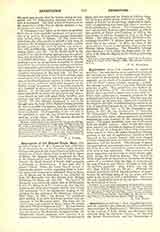

Expeditors, APOSTOLIC.—(Lat. Expeditionarius litterarum aposto licarum, Datarioe Apostolicoe sollicitator atque expeditor; It. Spedizionieri). Officials who attend to the sending of Bulls, Briefs, and Rescripts, that emanate from the Apostolic Chancery, the Dataria, the Sacred Poenitentiaria, and the Secret ariate of Briefs. In a restricted and specific sense expeditors or expeditioners are laymen approved by the Dataria, after an examination, to act as agents for bishops or others before the Dataria or Apostolic Chancery. They are members of the Roman Court. They differ from solicitors as well as from procurators or agents in general, who transact business with the Roman Congregations. A solicitor, strictly speaking, is an assistant to a procurator, doing the mechanical work of preparing documents. An expeditor is more concerned with matters of favor, privileges, dispensations and so on, than with cases in litigation. It has been the practice of the Dataria and Apostolic Chancery to carry on business only with authorized agents, or expeditors, whose office it is to draw up and sign the necessary documents, receive and forward the answer given. They receive a certain fixed fee for each transaction, while procurators and solicitors generally receive a monthly stipend. The number of expeditors has varied. Cardinal Pacca, pro-datarius, decided, in 1833, that the number, which was then one hundred, should be regulated by the amount of business to be transacted. In late years there were about thirty. In reorganizing the Roman Court, Pius X deprived these expeditors of their exclusive right to appear before the Dataria, and Apostolic Chancery.
ANDREW B. MEEHAN

